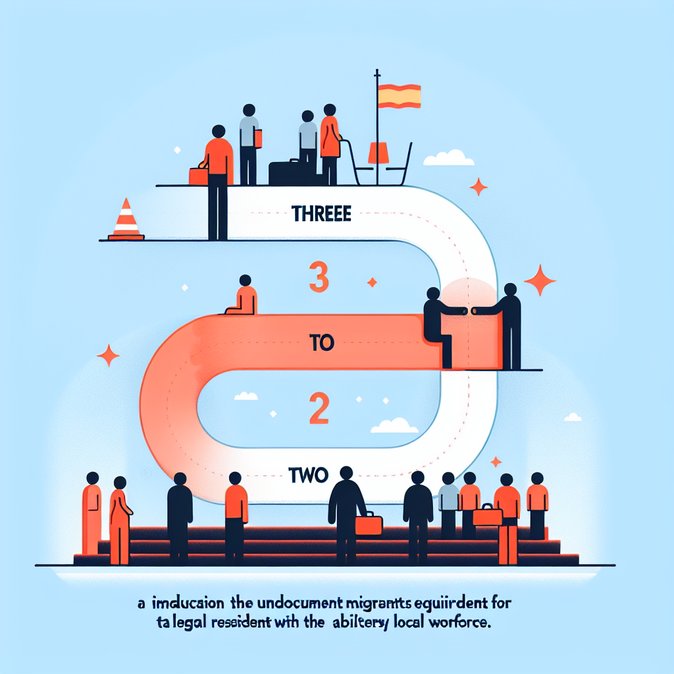
From 30 November, drivers entering Málaga’s 437-hectare Low-Emission Zone (LEZ) without the required environmental sticker will face an automatic €200 fine. After a year-long “educational” phase, the city council says the camera-controlled perimeter—covering the historic centre, Soho district and La Malagueta—will finally switch to enforcement mode. More than 130 cameras and smart traffic lights will read licence plates in real time and cross-check them with Spain’s DGT emissions database. Vehicles that lack a valid B, C, ECO or Zero label—especially older petrol models registered before 2000 and diesels before 2006—risk an immediate sanction.
The move places Málaga alongside Madrid and Barcelona in Spain’s expanding network of LEZs introduced under EU clean-air directives. Although the toughest restrictions target non-resident “Category A” vehicles (those with no sticker at all), the city has carved out exemptions for delivery vans (four-year grace period), classic cars and mobility-adapted vehicles. Municipal officials hope the measure will replicate the 20-plus % pollution reductions logged in other European cities, but retailers worry it could deter Christmas shoppers during the crucial holiday season.
![Málaga’s Low-Emission Zone to Start €200 Fines on 30 November]()
For foreign residents and business travellers, the switch matters on two fronts. First, rental-car fleets predominantly carry C-label vehicles and therefore remain unaffected—but visitors using private or leased cars imported from abroad must verify their sticker status online before arrival. Second, the LEZ perimeter sits directly between Málaga-Costa del Sol Airport and many popular downtown hotels. Executive travellers accustomed to hiring chauffeur services from the airport should confirm that providers hold the correct permits, or risk delays at police checkpoints.
Corporate mobility managers are already updating travel policies: staff driving into the city centre should favour public transport or pre-arranged taxis equipped with green licences. Companies with branch offices in Málaga’s tech cluster are advising employees to park at suburban commuter stations and ride the Cercanías rail line into the LEZ. The City Council has promised a six-month “soft-landing” with warning notices for first-time offenders, but only for Spanish-registered vehicles; foreign plates will be fined from day one because the camera system links directly to the EUCARIS cross-border database.
In practical terms, expatriates relocating to Andalucía should budget for the cost and lead-time of ordering an emissions sticker from Spain’s traffic authority (DGT). Applications can be made online and dispatched abroad, but postal delays are common in December. Failure to display the label—even if the car technically qualifies—still triggers a fine. With Córdoba and Jaén preparing similar zones in early 2026, Spain’s patchwork of LEZ rules is quickly becoming an essential compliance item for assignees who plan to drive across regions.
The move places Málaga alongside Madrid and Barcelona in Spain’s expanding network of LEZs introduced under EU clean-air directives. Although the toughest restrictions target non-resident “Category A” vehicles (those with no sticker at all), the city has carved out exemptions for delivery vans (four-year grace period), classic cars and mobility-adapted vehicles. Municipal officials hope the measure will replicate the 20-plus % pollution reductions logged in other European cities, but retailers worry it could deter Christmas shoppers during the crucial holiday season.

For foreign residents and business travellers, the switch matters on two fronts. First, rental-car fleets predominantly carry C-label vehicles and therefore remain unaffected—but visitors using private or leased cars imported from abroad must verify their sticker status online before arrival. Second, the LEZ perimeter sits directly between Málaga-Costa del Sol Airport and many popular downtown hotels. Executive travellers accustomed to hiring chauffeur services from the airport should confirm that providers hold the correct permits, or risk delays at police checkpoints.
Corporate mobility managers are already updating travel policies: staff driving into the city centre should favour public transport or pre-arranged taxis equipped with green licences. Companies with branch offices in Málaga’s tech cluster are advising employees to park at suburban commuter stations and ride the Cercanías rail line into the LEZ. The City Council has promised a six-month “soft-landing” with warning notices for first-time offenders, but only for Spanish-registered vehicles; foreign plates will be fined from day one because the camera system links directly to the EUCARIS cross-border database.
In practical terms, expatriates relocating to Andalucía should budget for the cost and lead-time of ordering an emissions sticker from Spain’s traffic authority (DGT). Applications can be made online and dispatched abroad, but postal delays are common in December. Failure to display the label—even if the car technically qualifies—still triggers a fine. With Córdoba and Jaén preparing similar zones in early 2026, Spain’s patchwork of LEZ rules is quickly becoming an essential compliance item for assignees who plan to drive across regions.


